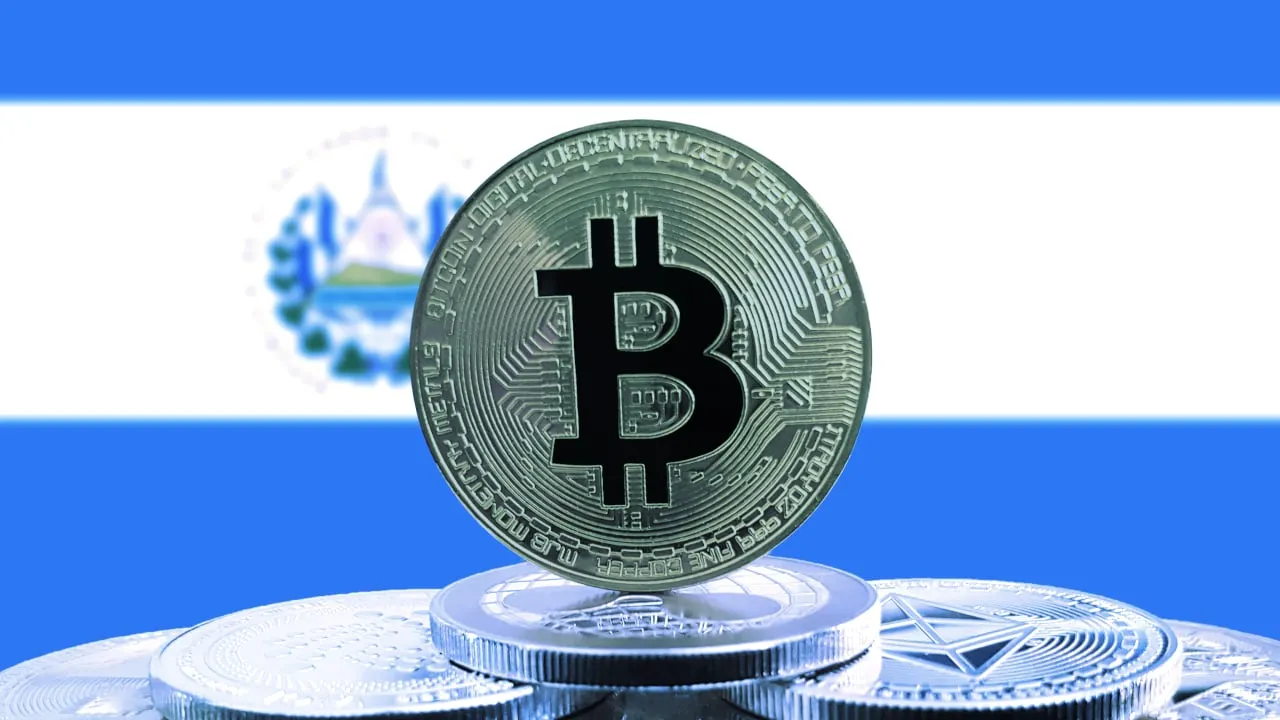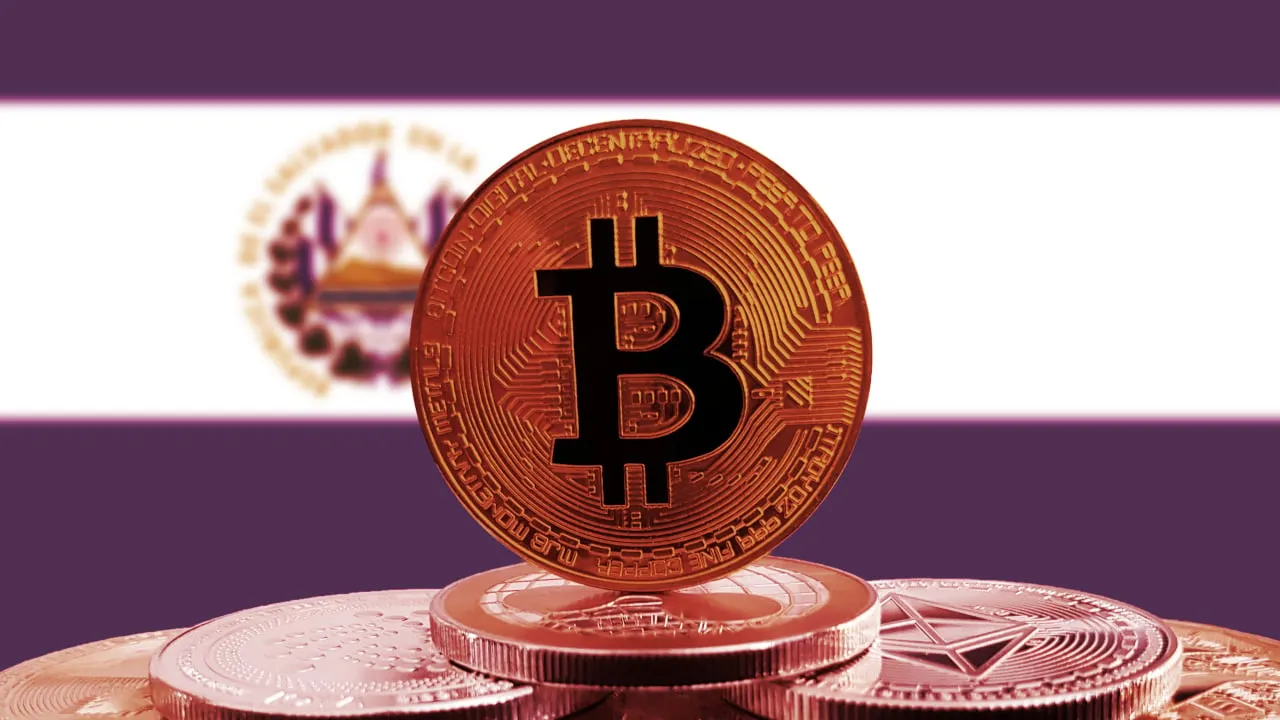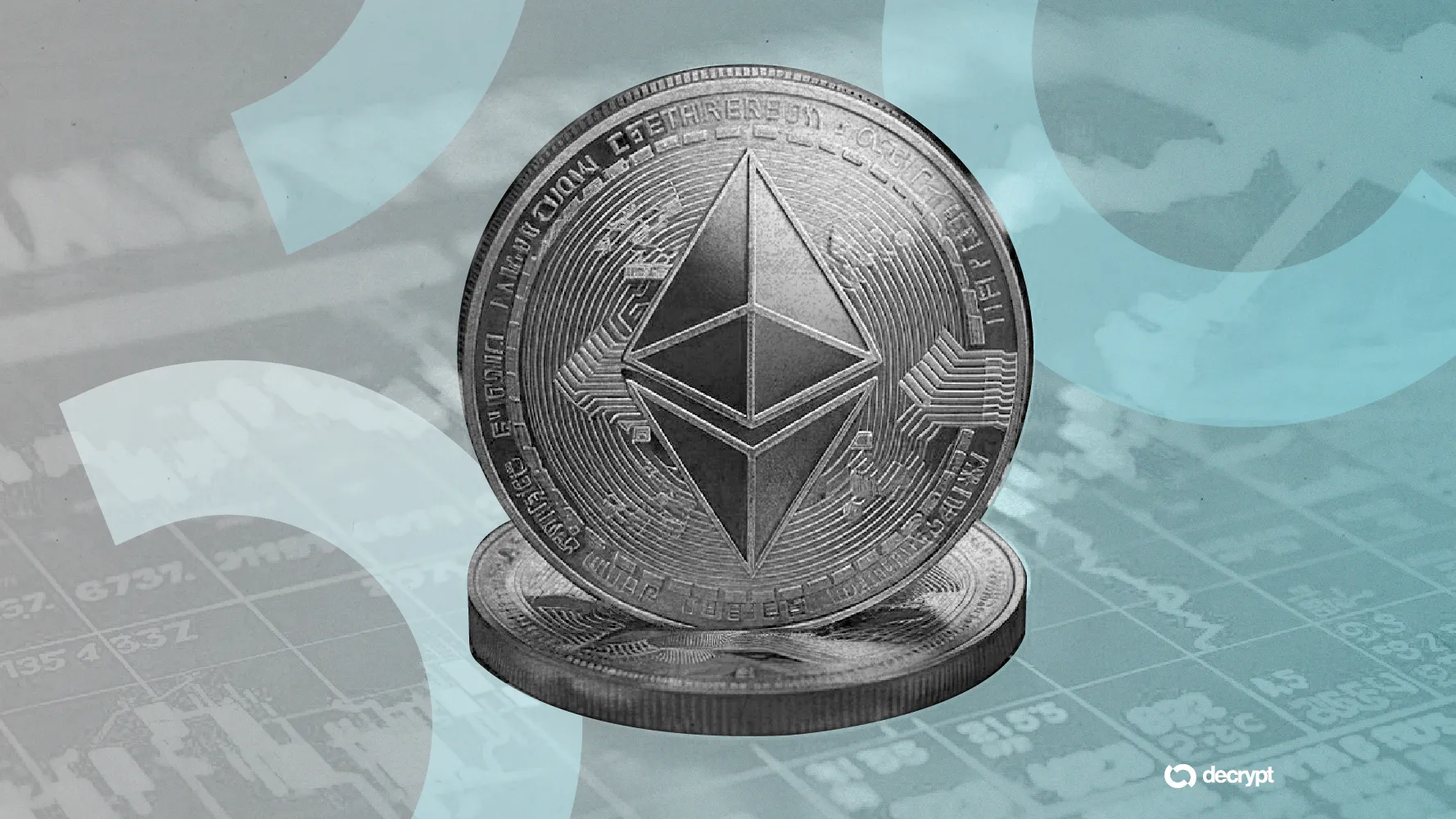I’m a fan of @BitcoinMagazine, please don’t spread @Reuters FUD.
The #Bitcoin Volcano Bonds 🌋 will be issued with @bitfinex.
The short delay in the issuance is only because we are prioritizing internal pension reform and we have to send that to congress before. https://t.co/chUGgdDBDc
— Nayib Bukele (@nayibbukele) March 23, 2022
Coin Prices
BTC
$116,102.00
-2.13%ETH
$3,731.21
2.30%XRP
$3.13
0.70%BNB
$771.99
0.77%SOL
$181.44
-2.50%USDC
$0.999905
0.00%DOGE
$0.230531
-2.22%STETH
$3,725.21
2.65%TRX
$0.316697
2.74%ADA
$0.806666
0.56%WBTC
$115,947.00
-2.23%WSTETH
$4,499.42
2.49%HYPE
$42.74
0.80%XLM
$0.423489
0.81%SUI
$3.73
0.69%LINK
$18.09
0.99%WBETH
$3,979.68
1.76%BCH
$544.09
4.67%WEETH
$3,996.91
2.81%HBAR
$0.242646
0.83%AVAX
$23.70
0.35%LTC
$114.71
0.90%LEO
$8.96
-0.48%WETH
$3,733.77
2.65%SHIB
$0.00001359
0.29%TON
$3.14
0.33%USDS
$0.999817
-0.02%USDE
$1.003
0.19%BSC-USD
$1.001
0.04%UNI
$10.53
4.31%WBT
$43.57
-1.24%DOT
$4.02
1.21%CBBTC
$116,022.00
-2.09%XMR
$328.22
3.02%PEPE
$0.00001226
-1.91%BGB
$4.51
-0.99%AAVE
$293.05
1.80%CRO
$0.130885
3.44%SUSDE
$1.19
0.03%TAO
$418.11
-0.56%ENA
$0.568084
21.53%NEAR
$2.77
2.84%ETC
$22.51
-0.22%PI
$0.441942
-0.38%ONDO
$1.029
2.38%APT
$4.73
1.99%ICP
$5.55
1.80%JITOSOL
$220.46
-2.29%OKB
$47.75
-1.19%BONK
$0.00003457
-1.51%KAS
$0.098377
-1.51%MNT
$0.751274
-0.61%BUIDL
$1.00
0.00%PENGU
$0.03763933
-4.76%ALGO
$0.261988
1.33%ARB
$0.438931
2.00%WETH
$3,739.32
2.48%USD1
$1.002
0.15%VET
$0.02533272
3.66%ATOM
$4.69
1.45%RENDER
$4.11
2.41%GT
$17.63
2.04%POL
$0.232368
1.42%WLD
$1.15
1.75%TRUMP
$9.94
0.85%FTN
$4.50
0.02%FET
$0.736564
-0.14%SEI
$0.324205
2.38%BNSOL
$192.37
-2.46%SKY
$0.087336
2.18%FIL
$2.61
0.49%RETH
$4,249.86
2.66%QNT
$120.23
0.93%SUSDS
$1.061
0.02%SPX
$1.81
2.11%LBTC
$115,945.00
-2.15%RSETH
$3,902.97
2.44%JUP
$0.542032
0.84%FLR
$0.0225443
0.46%JLP
$5.03
-0.76%IP
$5.25
2.11%KCS
$12.08
-0.37%CRV
$1.081
10.06%USDTB
$0.9997
-0.04%XDC
$0.087981
5.55%FDUSD
$1.001
0.26%OSETH
$3,926.65
2.65%METH
$4,001.72
2.80%TIA
$1.90
4.10%FARTCOIN
$1.37
-3.33%USDT0
$1.00
-0.07%LSETH
$4,032.16
2.59%INJ
$13.75
1.45%NEXO
$1.33
1.93%USDT
$1.00
-0.03%OP
$0.717154
5.31%EZETH
$3,927.18
2.71%FLOKI
$0.0001287
0.96%STX
$0.779293
-2.61%SOLVBTC
$116,322.00
-1.60%JUPSOL
$203.51
-2.31%S
$0.33393
0.67%WIF
$1.055
-2.13%IMX
$0.55344
1.63%GRT
$0.103406
1.20%WBNB
$772.64
0.69%VIRTUAL
$1.57
-0.45%USDC
$1.001
0.10%LDO
$1.09
1.83%SAROS
$0.366337
-5.74%CFX
$0.188427
0.87%KAIA
$0.163075
0.09%PAXG
$3,355.51
-0.44%ENS
$28.58
-0.20%XTZ
$0.882415
-2.26%WBTC
$116,256.00
-1.82%PUMP
$0.00260751
-15.04%CAKE
$2.66
2.27%SYRUPUSDC
$1.11
-0.02%CLBTC
$117,431.00
-1.17%MSOL
$237.02
-2.73%A
$0.571252
-0.69%EETH
$3,727.86
2.42%THETA
$0.867903
1.02%PYUSD
$0.999302
-0.03%XAUT
$3,339.48
-0.79%JASMY
$0.01704146
-1.06%SUPEROETH
$3,727.83
2.54%RAY
$3.00
0.69%IOTA
$0.203639
1.56%GALA
$0.01738842
0.91%CMETH
$3,992.74
2.63%TKX
$9.67
-9.61%AERO
$0.894367
0.72%CGETH.HASHKEY
$3,864.18
1.97%PENDLE
$4.57
4.78%SAND
$0.301105
1.24%PYTH
$0.126094
0.66%SYRUP
$0.597325
21.77%OUSG
$111.92
0.01%JTO
$1.98
-2.87%USDY
$1.092
-0.41%USDX
$0.999876
0.08%BTT
$0.00000067
-0.76%USDF
$0.999866
-0.00%ZEC
$40.45
-0.20%TBTC
$116,018.00
-1.78%FLOW
$0.406371
1.10%WETH
$3,729.92
2.59%HNT
$3.37
-1.84%MORPHO
$1.94
3.40%AB
$0.00872622
0.87%M
$0.363049
-19.49%MANA
$0.313272
1.67%WAL
$0.433171
-1.20%DOGE
$0.23206
-2.05%MOG
$0.00000152
5.15%USD0
$0.997729
-0.01%ETHX
$3,970.70
2.78%BSV
$28.72
2.14%WETH
$3,734.13
2.72%RLUSD
$0.999785
-0.01%BTC.B
$116,079.00
-1.98%XSOLVBTC
$115,958.00
-1.65%CORE
$0.554618
-0.64%TEL
$0.00600107
-5.89%B
$0.554746
-0.81%BRETT
$0.055861
2.20%CBETH
$4,112.99
2.61%USDD
$0.999965
-0.03%BDX
$0.074878
0.85%XCN
$0.01557251
-2.67%APE
$0.654456
1.06%RUNE
$1.47
2.77%WHYPE
$42.84
0.94%RSR
$0.00856691
1.49%TUSD
$1.003
0.33%SWETH
$4,079.08
2.82%AR
$7.54
2.86%AIOZ
$0.413672
0.52%ETHFI
$1.17
5.41%STRK
$0.131639
3.29%DYDX
$0.626245
2.51%SDAI
$1.16
0.01%NFT
$0.00000046
2.14%NEO
$6.54
-0.05%EGLD
$16.14
-0.48%COMP
$48.49
0.23%TETH
$4,506.93
2.47%FRXETH
$3,714.63
2.57%XEC
$0.00002217
0.86%DEEP
$0.176213
1.22%WEMIX
$0.966429
3.11%CVX
$5.34
10.64%EIGEN
$1.37
5.45%USTB
$10.76
0.01%KAVA
$0.398421
0.16%WETH
$3,732.77
2.61%AXL
$0.42326
7.64%AXS
$2.55
1.50%USDC.E
$0.999907
-0.00%DEXE
$7.32
1.26%BEAM
$0.00806617
3.90%VENOM
$0.197023
-4.44%USYC
$1.094
-0.01%USDB
$1.001
0.10%CHZ
$0.0417083
1.38%ZK
$0.055796
2.66%TRIP
$13.59
0.43%STHYPE
$42.66
1.03%WAVAX
$23.70
0.59%DAI
$0.99986
-0.01%USDT
$1.003
0.26%W
$0.083356
3.26%1INCH
$0.277764
0.25%EOS
$0.568827
-0.62%GNO
$143.84
0.80%BBSOL
$198.96
-2.43%JST
$0.0374217
1.90%AKT
$1.35
0.43%SAVAX
$28.83
0.69%ZBCN
$0.00424907
11.54%RON
$0.558935
0.71%DOG
$0.00366346
3.92%OHM
$22.15
0.34%SUN
$0.01893878
3.30%TURBO
$0.00527632
5.93%POPCAT
$0.368236
-3.33%EBTC
$117,647.00
-0.75%ATH
$0.03352312
3.51%MOVE
$0.136518
-6.46%SUPER
$0.783324
2.54%LUNC
$0.00006231
0.74%CTC
$0.746736
-1.34%WBTC
$116,102.00
-1.92%MATIC
$0.2324
1.14%KTA
$0.82908
10.37%TWT
$0.798282
1.54%AMP
$0.00390025
1.91%ETH+
$3,904.73
2.39%KAITO
$1.35
0.01%SFRXETH
$4,170.52
1.59%USDG
$0.999683
-0.01%USELESS
$0.321463
4.86%REKT
$0.00000075
-3.24%GHO
$0.99795
-0.05%BUSD
$1.004
0.23%MOCA
$0.085518
-3.54%





